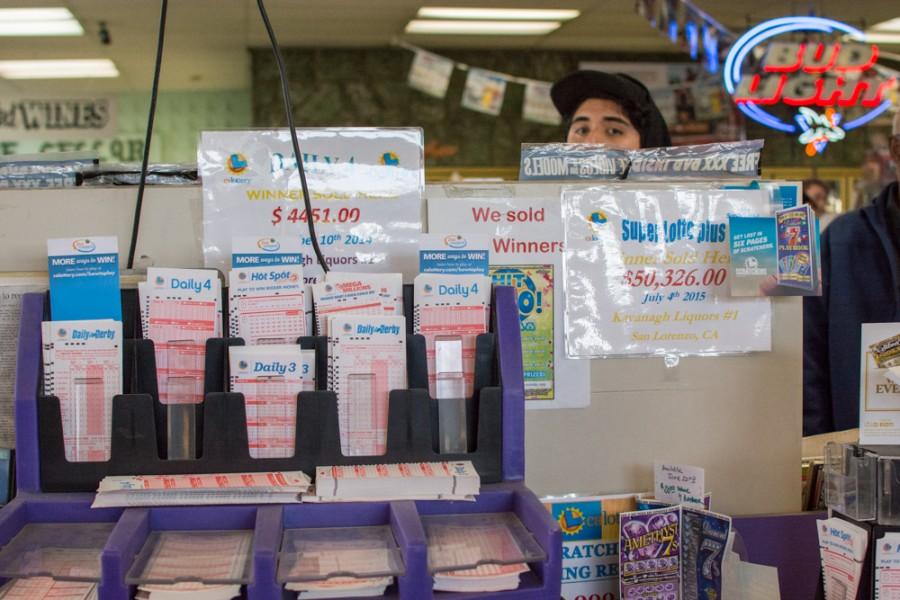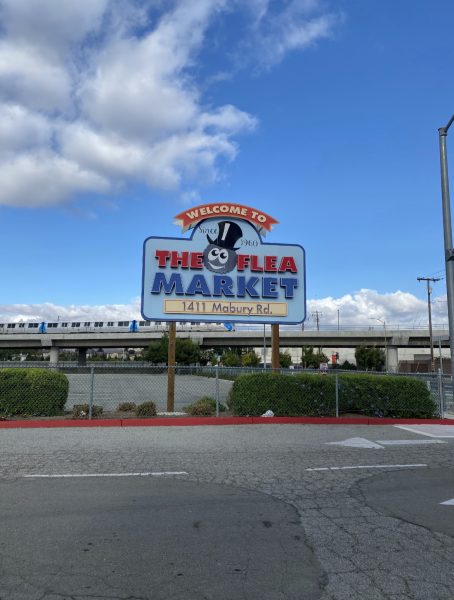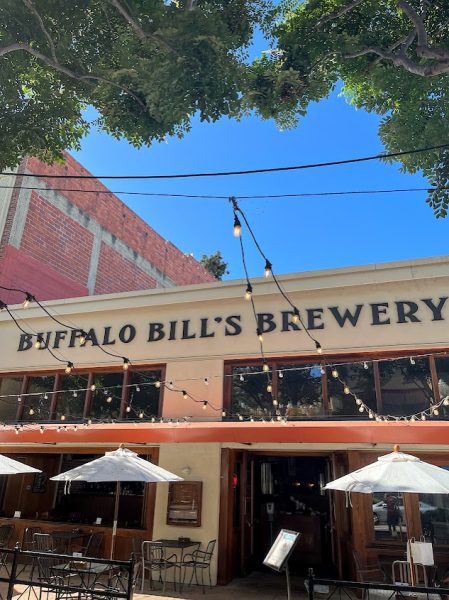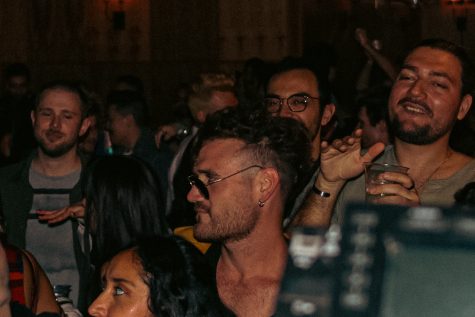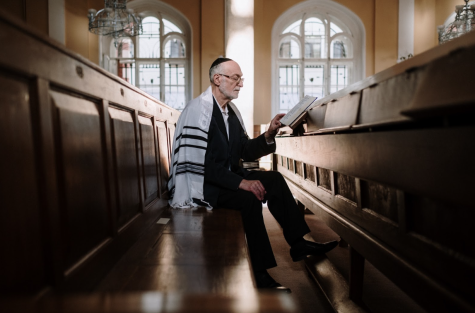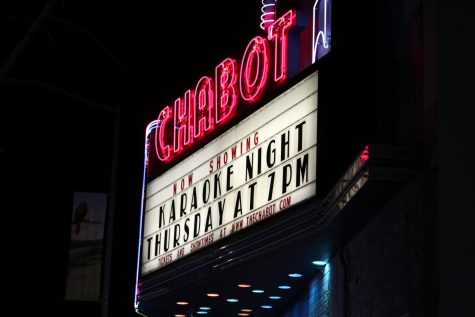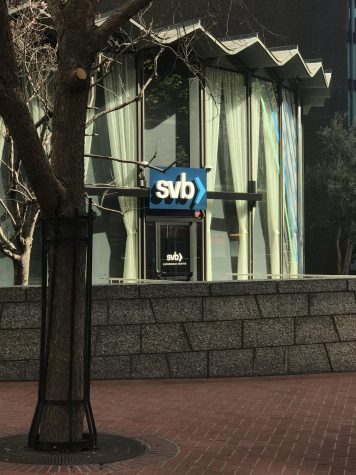San Lorenzo store luckiest in the state
January 21, 2016
For the past two weeks the Powerball lottery had people in frenzy. Lines wrapped around stores and went on for blocks for a chance to purchase tickets to win a $900 million jackpot and then $1.6 billion just a few days later.
Three people won the big jackpot including one ticket that was sold at a 7-11 in Chino Hills, in San Bernardino County. Large lines and crowds were the norm during the time of increased jackpots and prizes.
Kavanagh Liquors #1 in San Lorenzo was no different and saw massive crowds. However, this store has history to back it up. In a recent study by the California Lottery, they listed the liquor store as one of the luckiest in the state because of its huge payouts.
According to the California Lottery, since 1985, Kavanagh has had five lottery winners of more than $1 million — three more occurrences than any other store on the list of luckiest stores.
Earlier this month, a Union City resident won $1 million during the $900 million drawing after he matched five numbers, but not the powerball #.[mks_pullquote align=”left” width=”300″ size=”24″ bg_color=”#ffffff” txt_color=”#aa8622″]“When it gets this high just a few numbers can make you a millionaire.”[/mks_pullquote]
“It’s not just the jackpot,” San Leandro resident Michael Gaines said while in line at Kavanagh. “When it gets this high just a few numbers can make you a millionaire. Momma didn’t raise no fool.”
Gaines bought 40 quick picks for the $900 million drawing and he won $27. He came back for the $1.6 billion drawing and spent $40 again on quick picks.
“Somebody’s gotta win,” Gaines said. “Why not me?”
Winners can choose two methods of payment, a lump sum, or 30 annual payments. The 30 annual payment option receives more money overall however, both options have their drawbacks.
After taxes and fees, winners get anywhere from 25 to 50 percent of the total jackpot. The three winners of the $1.6 billion jackpot each receive about $533 million before taxes and fees which will leave them each with roughly $327.8 million each.
As recent as 2012, California Lottery officials said the average payout for jackpots is roughly 35 percent of the total prize.
Stores also benefit from ticket sales not just winners. Participating retailers receive 4.5 to six percent sales commission on total ticket sales and one half of one percent on winning tickets.
However, the store can only receive a maximum of $1 million on winning tickets no matter how large the jackpot is.
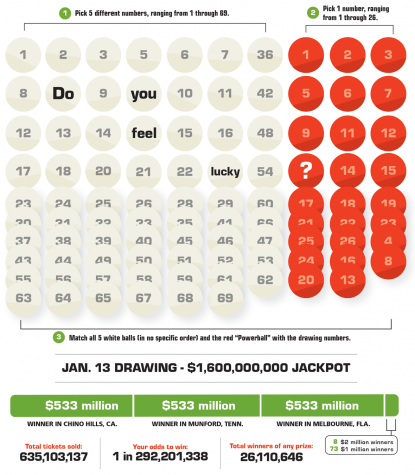
“It gets pretty crazy when the lotto goes up,” Kavanagh manager David Spahn said. “We have to make special lines and yell a lot. Some customers get mad about the crowds but hey, everybody wants a shot at the millions.”
Math instructor, Dang To said that the probability of winning the lottery is one in nearly 300 billion people.
“It’s fun to buy tickets and dream of what could happen,” To said. “But the odds are not good, most people will be throwing away money.”
However, that money will not just be thrown away. Kindergarten through 12th grade schools are a direct beneficiary of lottery taxes and unclaimed prizes, especially when ticket sales rise for large jackpots.
Last year $1.3 billion was given to K-12 schools from money brought in by lotto ticket sales.[mks_pullquote align=”left” width=”300″ size=”24″ bg_color=”#ffffff” txt_color=”#aa8622″]“Everybody wins, except the losers.”[/mks_pullquote]
With 2016 beginning with such a large jackpot, officials believe that number could increase this year.
“Everybody wins,” Spahn said. “Except the losers.”
Kavanagh’s last big winner was in 2013 when an 87-year-old woman took home an $11 million SuperLotto Plus prize. Of the store’s five winners of more than $1 million, the largest, $28.5 million, remains unclaimed.
California Lottery representative Ling Yin said that winning tickets are valid for 180 days before they expire and they are then donated to “public education.” There are also nine lottery district offices throughout California, including one on Industrial Boulevard in west Hayward.
“Those offices are more for sales reps,” Yin said. “Players can get help with questions or assistance claiming their prizes there but they don’t award prizes.”
The ticket was sold in 2003 and at the time it was the largest SuperLotto Plus prize ever won and remains one of the largest unclaimed prizes in the country.




